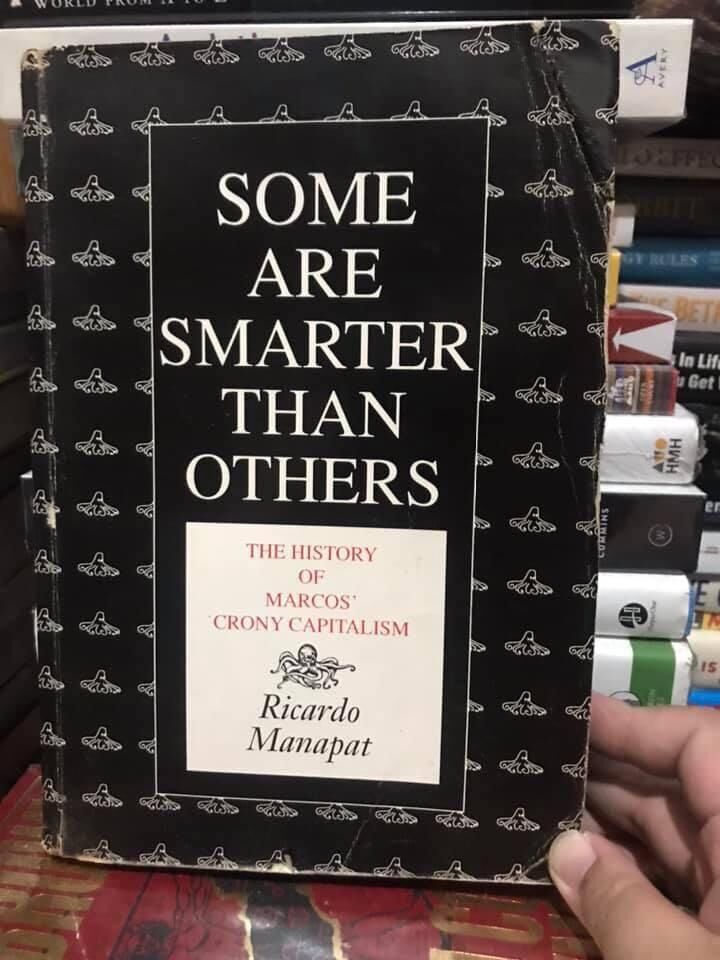IN the Philippines, the Social Weather Stations and Pulse Asia are the two most trusted independent, non-profit polling bodies. Their latest surveys indicate that Ferdinand Romualdez “Bongbong” Marcos Jr. is headed toward a landslide win on Election Day, Monday, May 9th, 2022.
Of course, then and now, candidates who do not lead in the latest surveys usually doubt their accuracy. Still, except for the willfully blind and/or delusional, it is painfully clear that barring a last-minute cataclysm, the son of a man whose regime (further) impoverished the P.I. will be president. I want to be proven wrong.
No, it’s not that many Filipino voters have “forgotten” how bad it was during the presidency of Bongbong’s father, Marcos Sr. There can be no “whitewashing” of his record. The historical accounts, the books, the reports, the statistics, the facts are all out there. You can “creatively” interpret them or try to explain them away, but it is still a terrible, horrible presidency — not even a “D,” but an “F minus.” Or, more appropriately, an “F U.”
But 1986, the year of Marcos Sr.’s ouster, is a long time ago, and even some of his most bitter opponents are now willing to give his son a pass. “Bongbong is not his father,” one of them said. “Let’s move on.” One of the “reformist” colonels who opposed Marcos Sr. said the son should not be “burdened” with his father’s record. He said it’s up to the voters anyway.
This reminds me of what H.L. Mencken once said: “Democracy is the theory that the common people know what they want, and deserve to get it good and hard.”
In his campaign sorties outside his father’s Ilocos region, Bongbong prefers to discuss the “future,” and “unity.” He would rather not talk about the past: i.e., his father’s disastrous presidency. For her part, the former first lady, Imelda Marcos, has been telling people, for so many years now, that Bongbong should be president so her family can finally share their fabulous wealth with the public. That was the plan, she said, but “misguided” elements kicked out her husband from Malacañang, the presidential palace. And what was the source of their fabulous wealth (10 billion U.S. dollars in 1986 which is worth about $25 billion today)? She says her husband found the gold and other treasures stashed by Japanese General Yamashita in the Philippines during World War II.
OK then.
When she and her husband were still in power — the “Conjugal Dictatorship” as a former supporter turned vocal critic once put it — she was asked about the Marcos’s incredibly wealthy friends, and Mrs. Marcos supposedly said, “Well, some people are smarter than others.” Her “explanation” echoed what New York politician George Washington Plunkitt (1842-1924) once said about “honest graft”: “I seen my opportunities and I took ‘em.”
When Marcos Sr. declared martial law in 1972 and ruled by decree, he vowed to create a new and better society. He promised that, henceforth, only the virtuous experts would be in charge. He said they, under his leadership, would get rid of, among many other bad things, graft and corruption.
Seven years later, Ricardo Manapat, a 26-year-old scholar and researcher in Manila, completed a 48-page pamphlet, “The Octopus” which documented how Marcos and his cronies had accumulated immense wealth. This was considered a “subversive” document. You could go to prison (or worse) if you were caught with it. Hundreds of copies were “mimeographed, collated and stapled,” and then circulated by a non-Communist opposition group in Manila. Manapat had already fled to the U.S. when the Marcosian military started arresting his friends and collaborators. An arrest warrant was issued against him. In the U.S., he learned that U.S. authorities were also looking for him. Marcos Sr. was a reliable U.S. ally. (The anti-Marcos slogan in the Philippines back then was, “Down with the U.S.-Marcos Dictatorship!”) While moving from one place to another on the U.S. East Coast, Manapat was also expanding his “pamphlet” into a full blown magnum opus titled “Some Are Smarter Than Others.” It was finally published in the Philippines in 1991, five years after the disgraceful end of the Marcosian government.
Here’s a sample of what Manapat wrote in his monumental book:
“The extreme poverty and malnutrition experienced by Filipinos [during the Marcos presidency] are further compounded by poor health, a deficient health system, the lack of a proper sanitation system, inadequate clothing and housing, a neglected educational system, and the lack of employment opportunities. The Philippines has the highest rates for whooping cough, diphtheria, and rabies in the world. It also has one of the highest rates for leprosy. It has the highest rates in the entire Western Pacific Region for tuberculosis, schistosomiasis, and polio.
“It is highly possible that the figures on infant mortality are higher than those which have been quoted, since most of these deaths occur in remote villages and are unrecorded. Of the children who do survive, many suffer from some degree of mental retardation, caused by the inadequate food intake of conceiving mothers. Every year, some 30,000 Filipino babies enter the world already suffering from the disadvantage of some form of mental deficiency. About 10% of adolescent Filipinos suffer from some mental handicap due to poor nutrition during their youth.”
His supporters assure us that Bongbong is not his father.
Small mercies, I guess.
Send feedback to editor@mvariety.com












